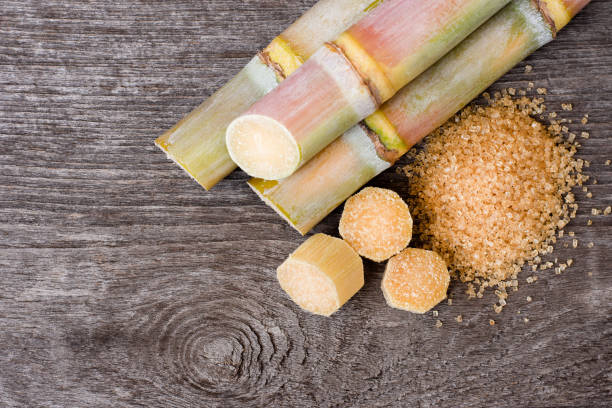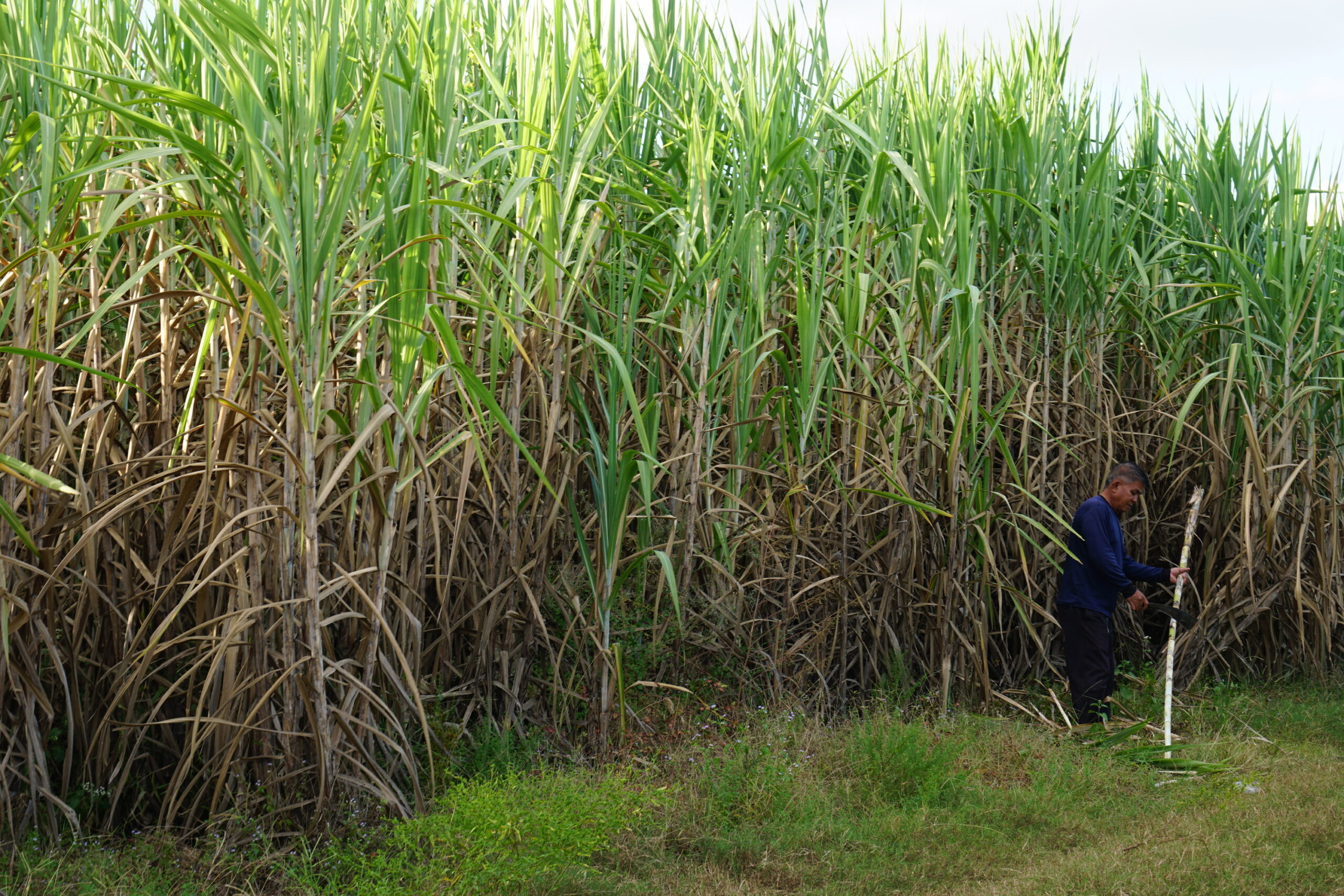Why Cane Sugar Processing Chemicals Are Essential for Modern Sugar Refining
The duty of walking cane sugar handling chemicals in modern-day sugar refining can not be overstated, as they are important to boosting both the efficiency of removal and the overall quality of the end product. Representatives such as phosphoric acid and particular flocculants are utilized to remove impurities, causing sugar that not just meets consumer expectations yet also follows market criteria. The ramifications of these chemicals expand beyond high quality, touching upon market characteristics and ecological factors to consider. sugar and cane. This raises essential concerns regarding the sustainability of such methods and their effect on the future of sugar manufacturing.
Function of Processing Chemicals
The efficacy of cane sugar handling pivots dramatically on the strategic application of processing chemicals. These chemicals play a critical role in boosting the performance and top quality of sugar extraction and refining. From the initial phases of juice removal to the final filtration actions, processing chemicals facilitate numerous essential procedures.
In the extraction stage, chemicals such as phosphoric acid and calcium hydroxide are utilized to optimize the clarification procedure, assisting to remove impurities and put on hold solids from the walking stick juice. This not only enhances the yield but additionally makes certain the clearness of the end product. Additionally, representatives like flocculants help in the fast settling of impurities, therefore enhancing the overall procedure.
As the handling advancements, chemicals are made use of in decolorization and condensation stages. Triggered carbon and ion exchange resins offer to eliminate shade and odor, making sure that the refined sugar satisfies consumer quality requirements. Ultimately, the function of handling chemicals extends past operational effectiveness; they significantly affect the sensory features of the end product, adding to market competitiveness. Therefore, the meticulous choice and application of these chemicals are essential for achieving ideal end results in cane sugar processing.
Trick Types of Chemicals
Walking cane sugar handling counts on a variety of key chemicals that facilitate each stage of production. These chemicals play crucial roles in clarifying, whitening, and cleansing the sugar drawn out from walking cane.
One key group of chemicals consists of flocculants, such as polyacrylamide, which help in the clarification process by promoting the aggregation and settling of impurities. Additionally, calcium hydroxide is typically utilized to reduce the effects of level of acidity and help in the elimination of non-sugar elements.
Whitening representatives, such as turned on carbon and sulfur dioxide, are made use of to decolorize the syrup, causing a clearer end product. These chemicals aid remove color compounds that may influence the sugar's look and bankability.
Moreover, phosphoric acid acts as a pH regulator during the processing phases, ensuring optimum problems for the enzymatic activities involved in sugar removal and filtration.
Other vital representatives consist of edta (ethylenediaminetetraacetic acid), which chelates steel ions that could militarize unfavorable reactions, and salt hydroxide, which helps in pH control throughout the refining procedure. Jointly, these chemicals enhance performance and make sure a high-quality walking cane sugar product.
Advantages for Sugar Top Quality
Usually overlooked, the use of details processing chemicals considerably improves the overall high quality of walking stick sugar. These chemicals play a critical function in refining processes, guaranteeing that the last product meets rigid industry requirements for purity and taste.

Additionally, processing chemicals help in attaining a consistent granulation and structure, which are crucial for customer approval. By managing the formation procedure, these chemicals make sure that the sugar crystals create consistently, causing a much more appealing product that liquifies well in numerous applications.
Moreover, the usage of these chemicals can boost the shelf life of walking stick sugar by reducing moisture absorption and microbial development. Generally, the calculated application of processing chemicals is important for delivering high-grade walking cane sugar that satisfies consumer expectations and sector needs.
Environmental Impact Factors To Consider

In addition, the energy-intensive nature of sugar refining, worsened by chemical use, typically causes raised carbon exhausts. This contributes to climate change and raises concerns concerning the sustainability of present refining methods. Additionally, the sourcing of these chemicals might entail practices that threaten biodiversity, such as monoculture farming, which minimizes the strength of farming ecosystems.

To mitigate these impacts, sugar refiners are increasingly discovering lasting options and embracing best techniques that decrease chemical use. Executing rigorous environmental monitoring systems can aid make sure that the refining process aligns with environmental criteria and advertises biodiversity. Eventually, a balanced technique that prioritizes both sugar high quality and environmental stewardship is important for the long-term practicality of the sugar industry.
Future Trends in Refining
As the sugar industry faces the ecological difficulties linked with standard refining techniques, innovative approaches are arising to improve both effectiveness and sustainability. One significant fad is the adoption of environment-friendly chemistry principles, which focus on making use of non-toxic, biodegradable handling chemicals. This shift not only minimizes ecological impact yet likewise addresses customer demand for cleaner manufacturing methods.
An Get More Information additional promising development is the execution of advanced filtering technologies, such as membrane layer separation and adsorption procedures. These strategies enhance the quality and quality of the sugar while minimizing the quantity of wastewater generated throughout refining. In addition, the integration of digital modern technologies, including IoT and AI, is transforming functional performance by allowing real-time surveillance and anticipating upkeep, thus minimizing resource waste.
In addition, making use of by-products from sugar refining, such as bagasse and molasses, is gaining traction. These materials can be transformed right into biofuels or value-added items, contributing to a round economy within the market. Jointly, these fads signify a change towards more sustainable methods that not only improve functional efficiency but likewise line up with international sustainability objectives, guaranteeing the future feasibility of sugar refining.
Verdict
Cane sugar processing chemicals are necessary in modern-day sugar refining, considerably boosting the efficiency and high visite site quality of sugar removal. The tactical use these chemicals not just boosts the pureness and flavor of the last item internet but likewise makes certain constant formation and texture. As the market significantly prioritizes sustainability, the adoption of environmentally-friendly handling representatives is likely to shape future trends in refining, ultimately resulting in higher high quality items and prolonged life span for customers.

Inevitably, a balanced technique that focuses on both sugar high quality and ecological stewardship is vital for the lasting feasibility of the sugar industry.
Cane sugar processing chemicals are crucial in modern sugar refining, substantially boosting the efficiency and quality of sugar extraction.